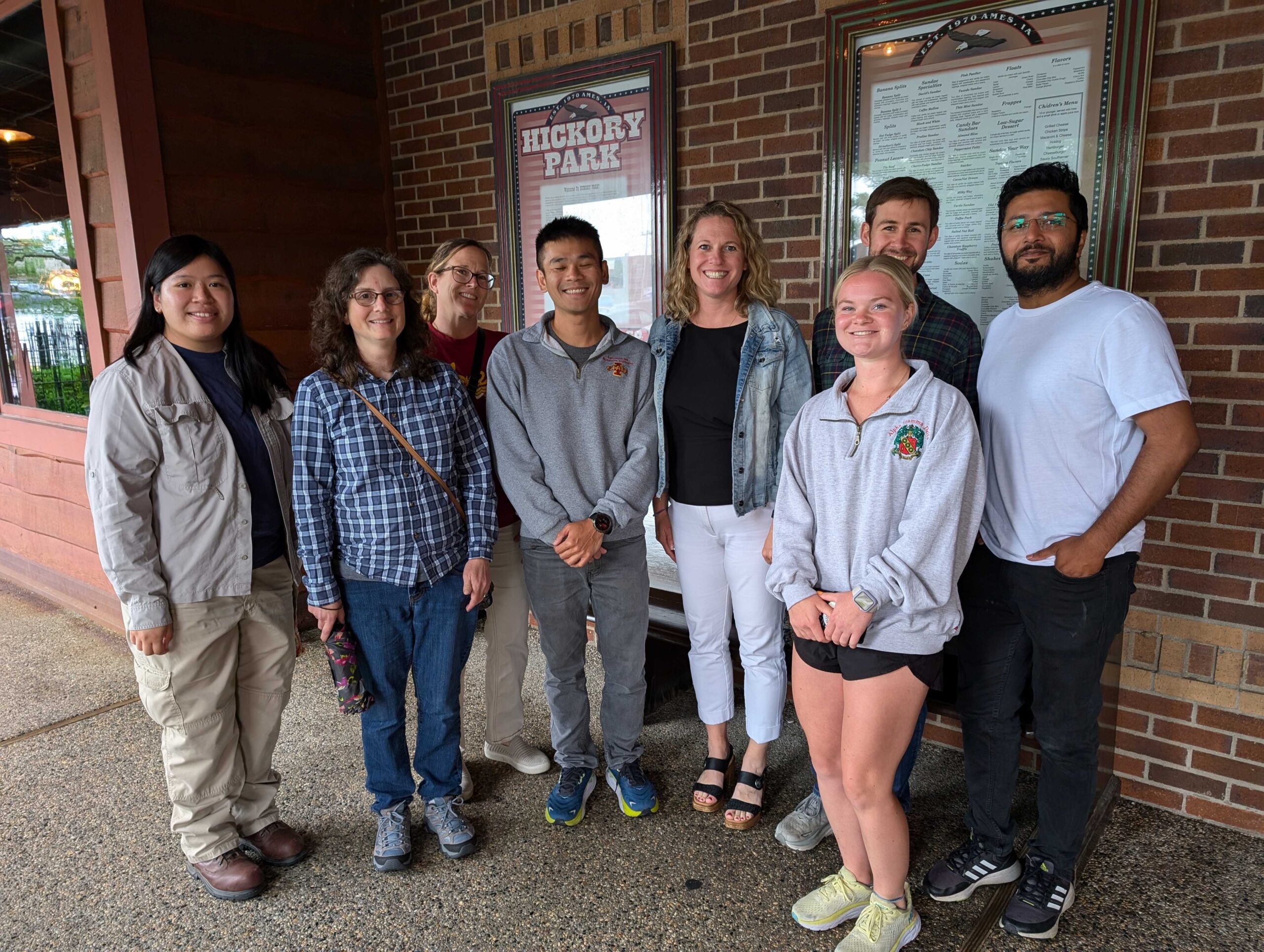Water Quality Research Lab: Improving Water Quality in Iowa and Beyond
Author: Caden Schweitzer
Author: Caden Schweitzer

Michelle Soupir, professor of agricultural and biosystems engineering, built the foundation for an impactful research team and lab 16 years ago. At the lab, she has enabled collaborations on projects with many state and national organizations.
“We’ve worked hard over the years to ensure our research questions are relevant to Iowa and the Midwestern US, but also of national and international impact. This has allowed us to secure funding from a wide variety of sources, including the Iowa Egg Council, Iowa Egg Industry Center, Iowa Soybean Association, Iowa Nutrient Research Center, Iowa Department of Natural Resources, as well as federal programs like the United States Department of Agriculture, Environmental Protection Agency, and National Science Foundation,” Soupir said.
The Lab’s research projects include a diverse number of studies on the effects of agricultural practices on water quality. The team aims to understand how farmers and agriculture professionals can safely conduct growing and treating crops without contaminating nearby water sources.
One of these major projects is the Land Management for Improved Yields, Environmental Resilience, and Sustainability (LAiYERS). The Iowa Egg Industry Center and soil technology group Soiltech helped fund the project, separating 12 plots of soil at the project site into different studies. Each plot has different soil treatments and Nitrogen testing for soil quality. Greenhouse gases are also investigated in relation to manure application.
The project came about after publication of a previous study that showed benefits of poultry manure application to improve soil health. The newer study is looking at timing of manure applications and different tilling methods affects on the soil.
Research Scientist Natasha Hoover, who joined the lab in 2012, is the head of the project.
“We hope to continue collaborating with the researchers there (the LAiYERS site), it’s such a neat site to do important work,” Hoover said.
The project’s research helps provide information to farmers to benefit the environment, including climate change effect prevention.
To continue their important research, Soupir has built connections with community members and locals affected by their projects.
“It’s so important to be connected with communities to understand the real challenges and ensure that our work provides benefits to the environment, but also is achievable in the field to be implemented for real water quality improvements,” said Soupir.
With multiple projects in progress, including the further development of LAiYERS, the Water Quality Research Lab continues to dig into agricultural impacts on water.